Tokyo’s historical Gakushikaian hotel is closing for good, but there’s still time to stay
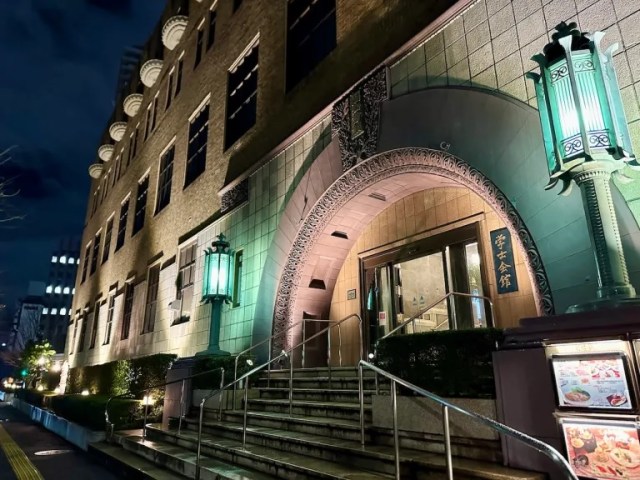
At-home hotel for scholars in downtown Tokyo is nearly 100 years old.
Our Japanese-language reporter Masanuki Sunakoma tends to stay in pretty modest hotels, with most of his recent stays being in accommodations that fall into either the capsule or business hotel categories. His most recent overnight stay, though, was in some place with a lot more historical weight to it.
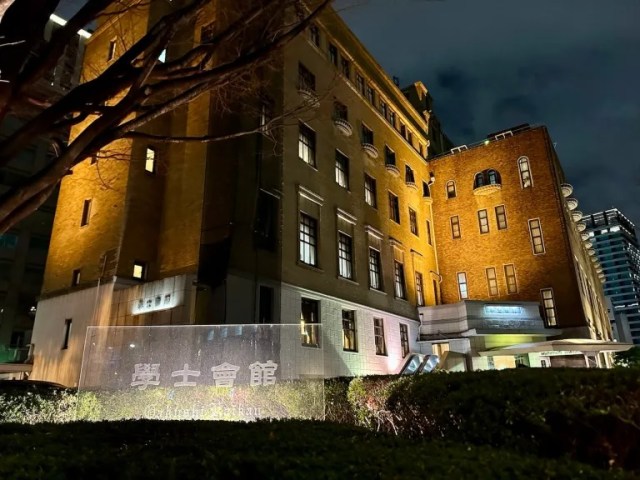
Located in downtown Tokyo’s Jinbocho neighborhood, the Gakushikaikan is nearly 100 years old. Opening in 1928, its name hints at its original purpose. Gakushikaikan translates to “scholars’ meeting building,” and it was created as a venue for academic gatherings by alumni of seven of Japan’s most prestigious universities, the University of Tokyo and Kyoto, Osaka, Nagoya, Kyushu, Tohoku and Hokkaido Universities. With schools from opposite corners of Japan within that group, these scholars would need a place to stay, and so the Gakushikaikan has an attached hotel, which in the beginning only accepted guests who were graduates of those academic institutions.
Because of its historical significance, the Gakushikaikan is now registered by the Japanese government as a Tangible Cultural Property. However, it’s still an operating hotel, and since it no longer has its prior-alumni-only restrictions, it’s now one that anyone can stay in, including Masanuki.
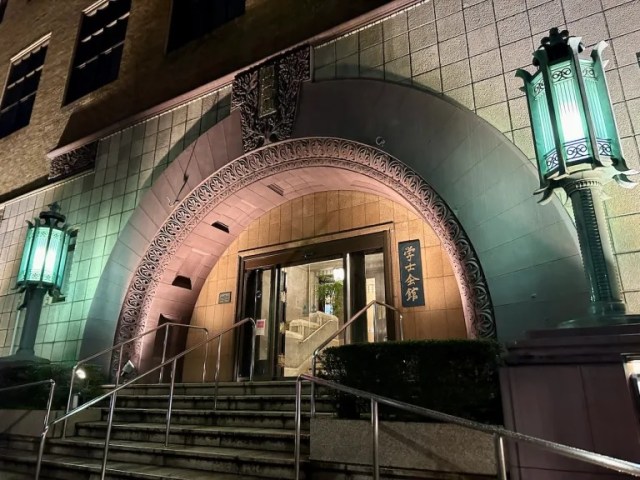
The building is located just a quick one-minute walk from exit A9 of the Jimbocho subway station, which is serviced by the Mita, Shinjuku, and Hanzomon Lines. Arriving after work, and well after sundown, the building’s exterior had a mysterious air to it in the shadows, almost as if Masanuki himself had gone back in time.
▼ Gakushikaikan is written in kanji characters (学士会館) to the right of the door at the building’s southern entrance.
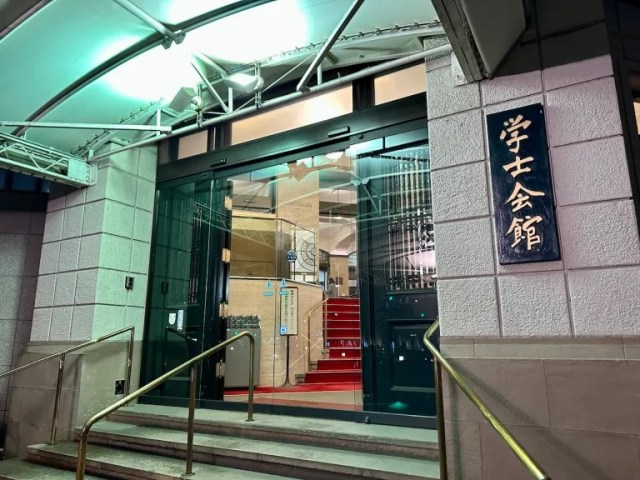
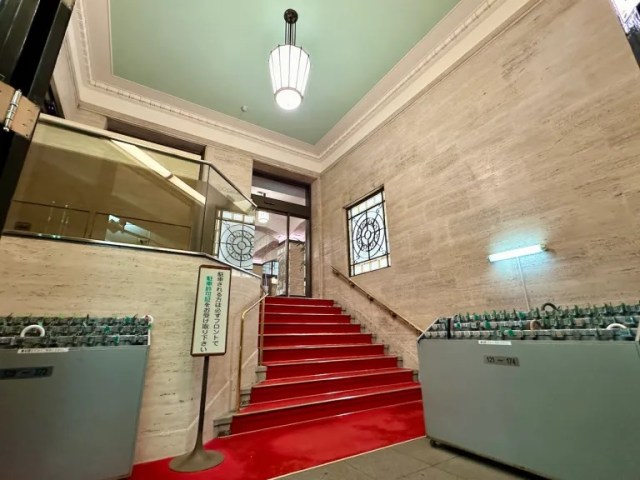
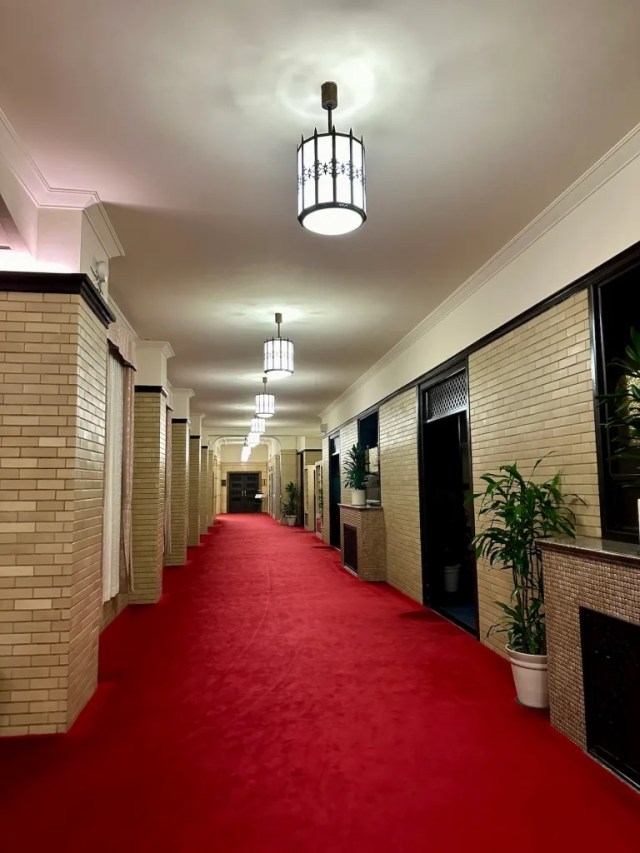
Stepping inside, the Gakushikaikan has a very distinct style to it. It’s not what you’d call Art Deco, but there’s a sort of weighty yet understated elegance to it, an aesthetic that was in fashion in the late 1800s and early 1900s as Japan was really starting to modernize architecturally, adopting and adapting influences from abroad as it became a member of the global community.
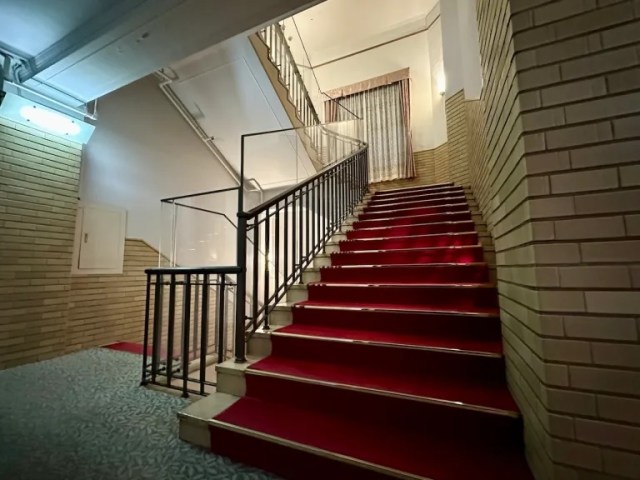
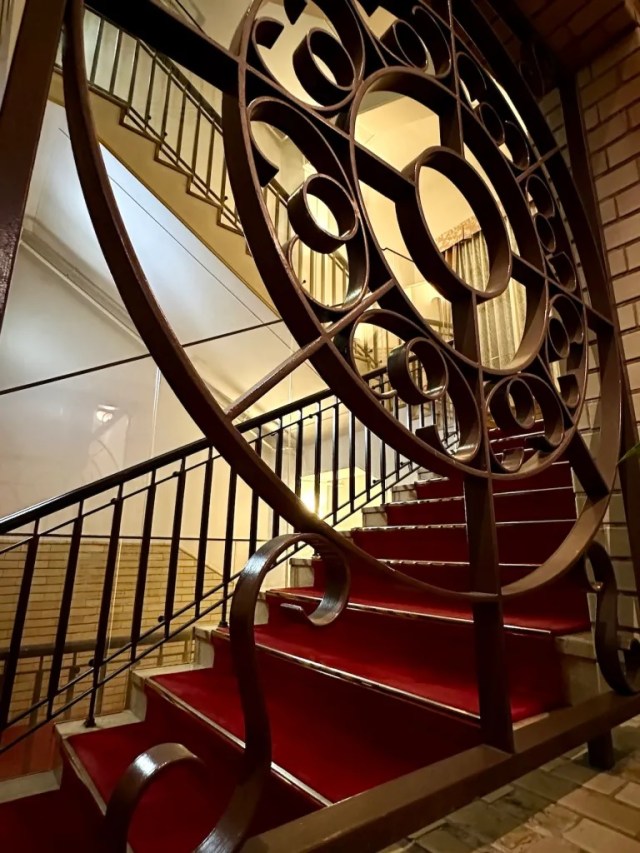
The hotel has a working elevator, but Masanuki decided to take the stairs up to his room so that he could see even more of the interior and soak up more of the atmosphere.
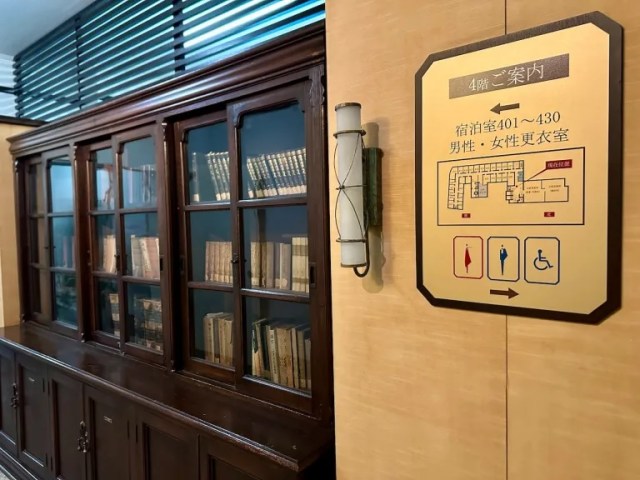
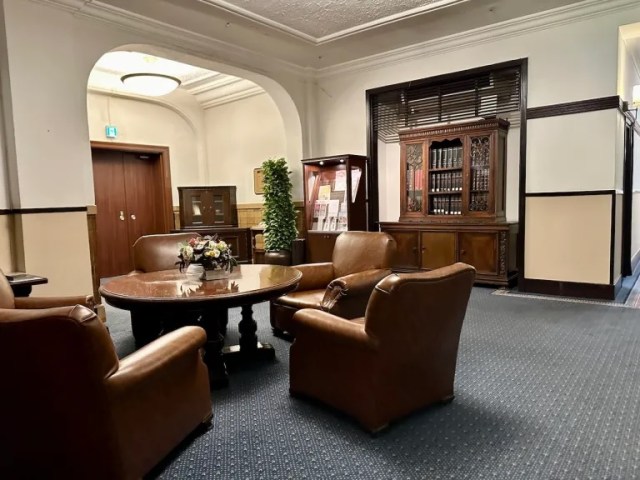
After nearly a century, the Gakushikaikan is showing its age here and there, but there’s a sense of warmth to the place too. The design concept for the building was to create “a home for scholars to come back to” after they’d graduated and gone out into the working world, and the result is a kind of posh relaxedness.
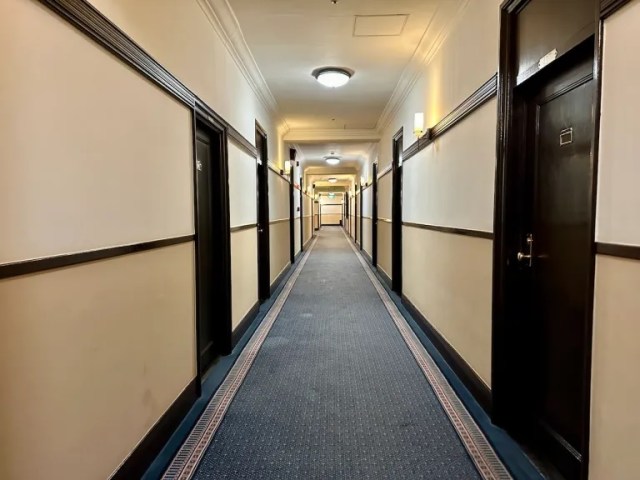
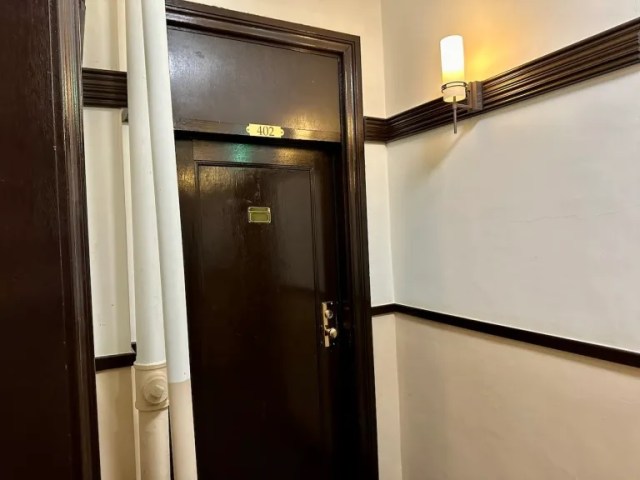
At the end of a long hallway, Masanuki came to his room. No electronic keycard system here, so he inserted his metal key into the brass fixture, unlocked the door…
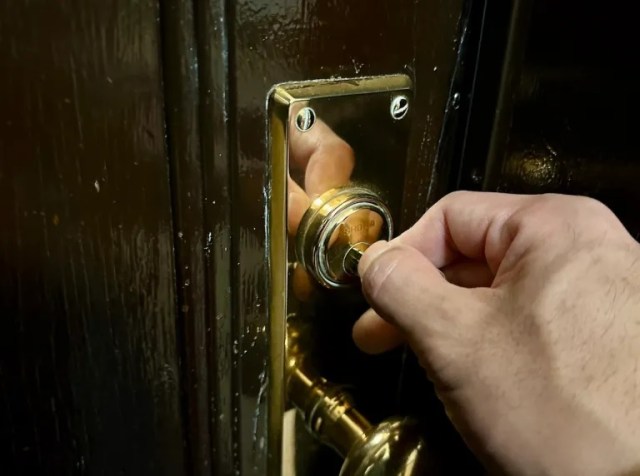
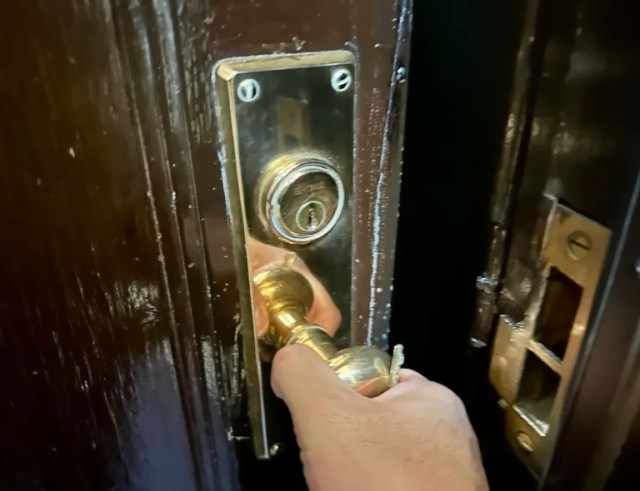
…and stepped inside.
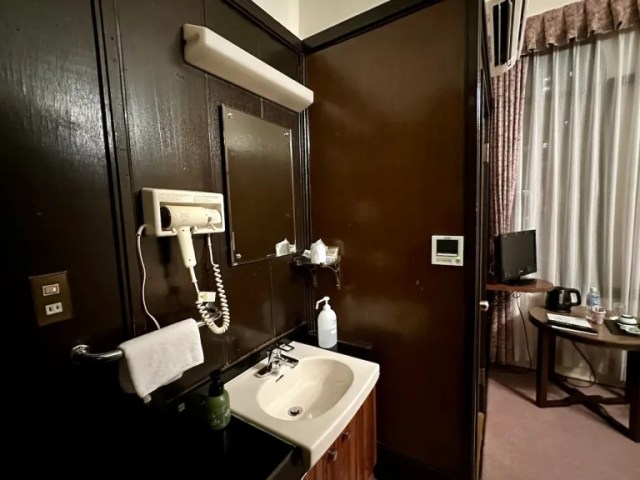
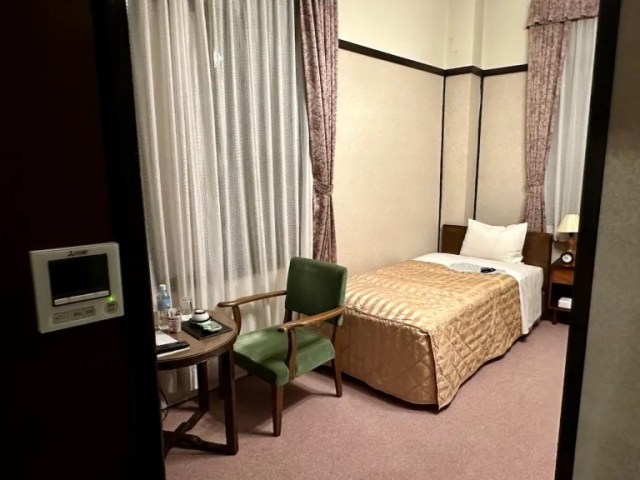
Having already walked around the hotel interior for a bit, the room very much aligned with his expectations. It’s cozy without enticing you into laziness, and cultured without feeling pretentious – again, like the comfortable home of an intellectual individual.
The high ceiling and varnished desk with writing lamp added some extra classiness, and while it definitely didn’t look like a new hotel, everything was immaculately clean.
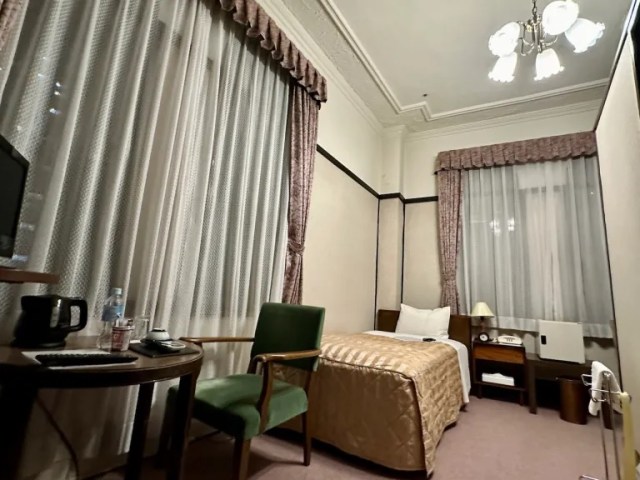
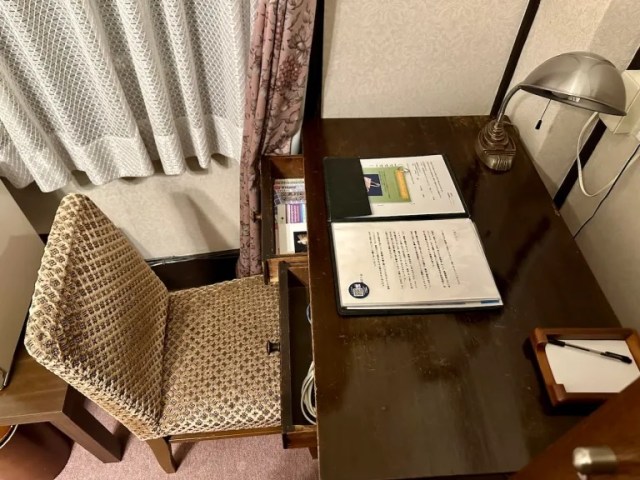
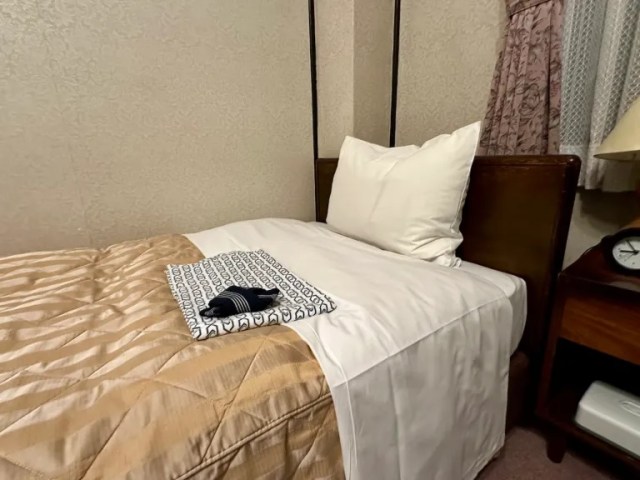
There are some relatively modern updates in the bathroom, though, which is a washlet type, and in the shower/bathtub, which is in its own separate room.
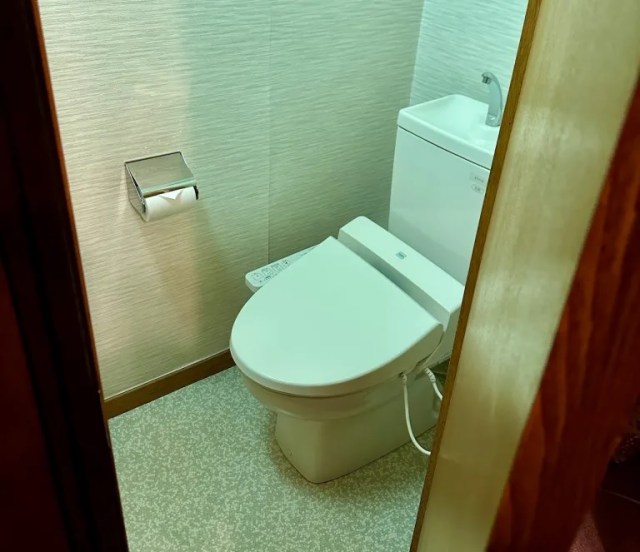
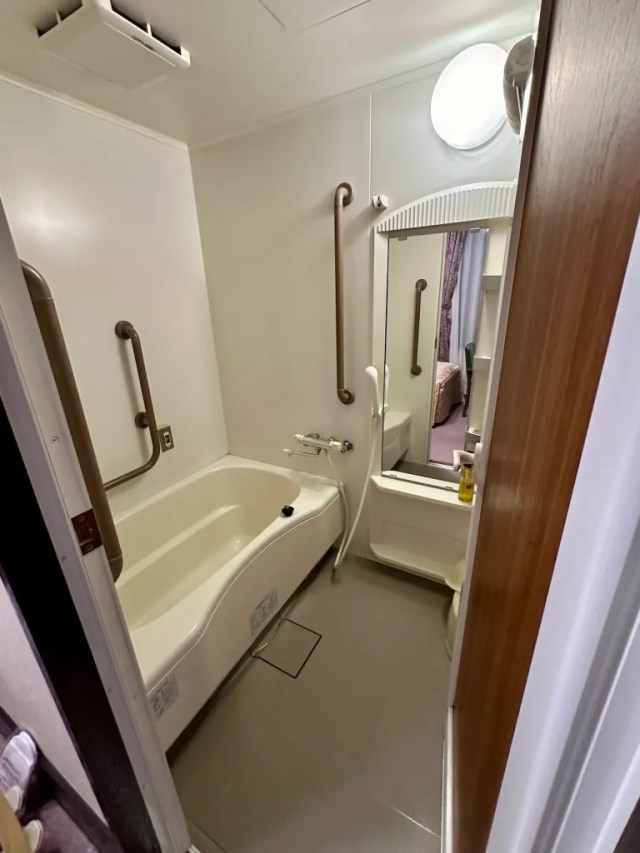
Considering how much elegant history he was surrounded by, and the short distance to the nearest subway station and easy access to the rest of downtown Tokyo, the 11,000 yen (US$74) Masanuki paid for his single room felt very reasonable. With thoughts of all the changes in the world the Gakushikaikan has stayed standing through, he felt a sense of profound calm come over him as he turned out the light and went to sleep.
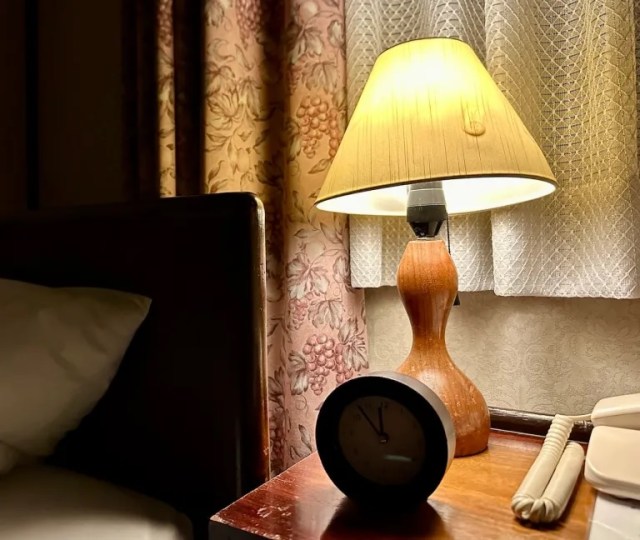
The sad irony of that, though, is that the Gakushikaikan’s days are numbered. Because of its age, it needs a number of renovations that have been judged infeasible, and coupled with an upcoming development project for the area, the decision has been made to close the building, and its hotel, permanently this coming December. Thankfully, there’s still time to stay the night, or eat at one of the hotel’s restaurants, before then, but you’ll want to start making those plans soon, and maybe stop by the famous soon-to-disappear Alta building elsewhere in Tokyo on the same day.
Hotel information
Gakushikaikan / 学士会館
Address: Tokyo-to, Chiyoda-ku, Kanda Nishikicho 3-28
東京都千代田区神田錦町3-28
Website
Photos ©SoraNews24
● Want to hear about SoraNews24’s latest articles as soon as they’re published? Follow us on Facebook and Twitter!
Credit:

0 comments:
Post a Comment